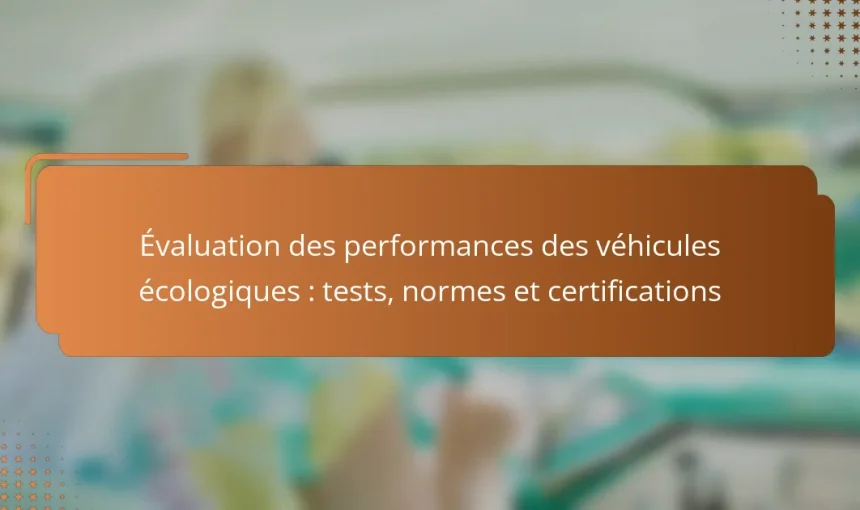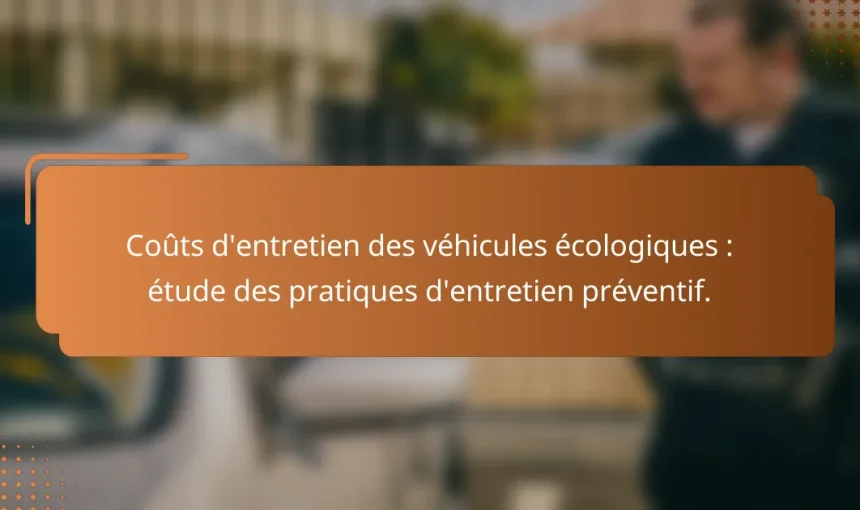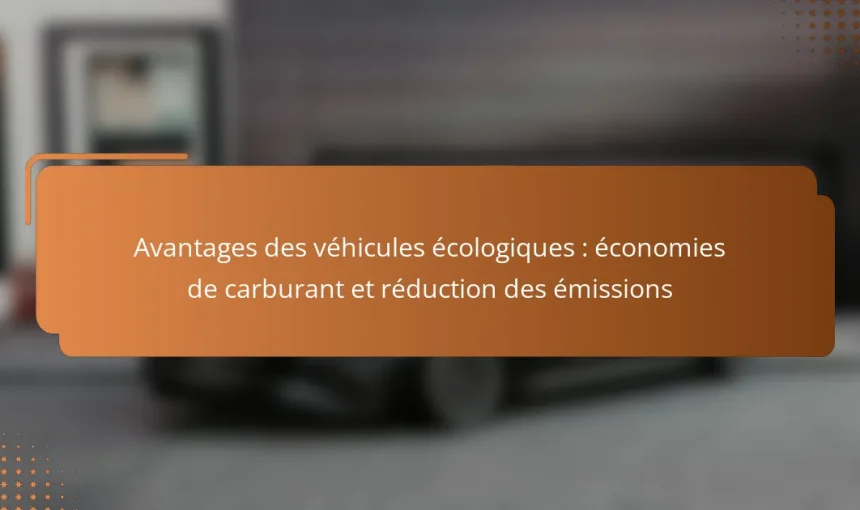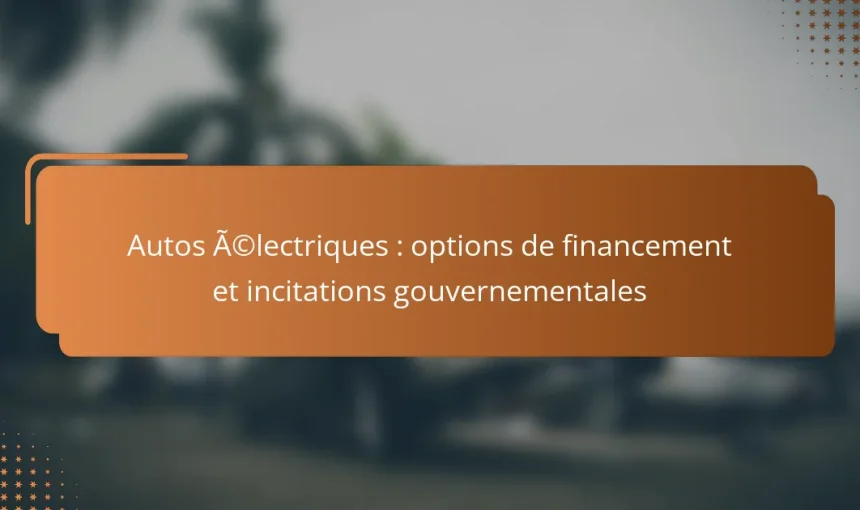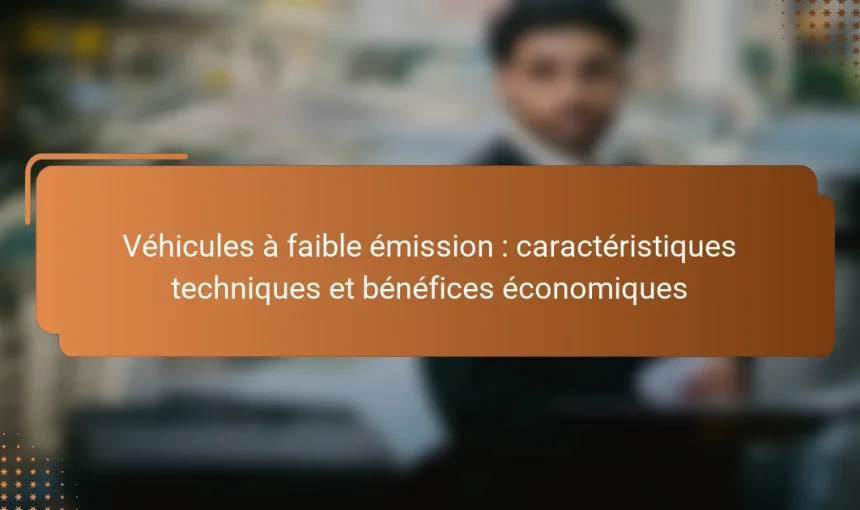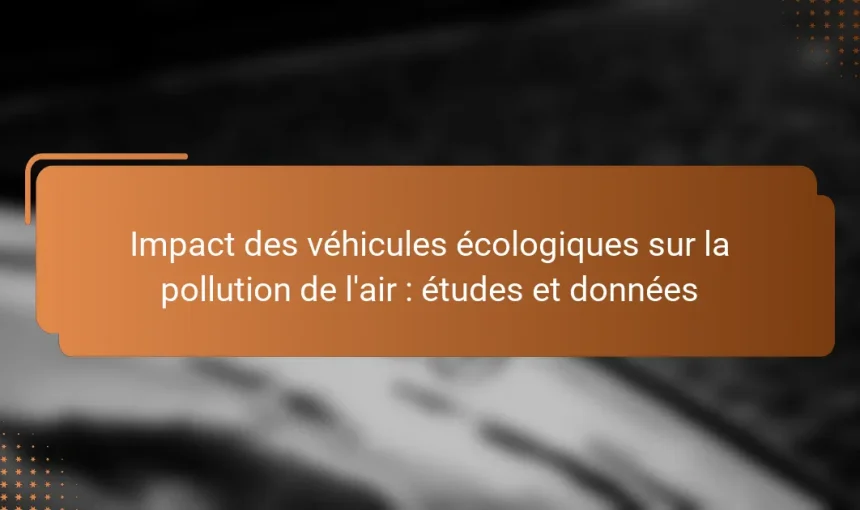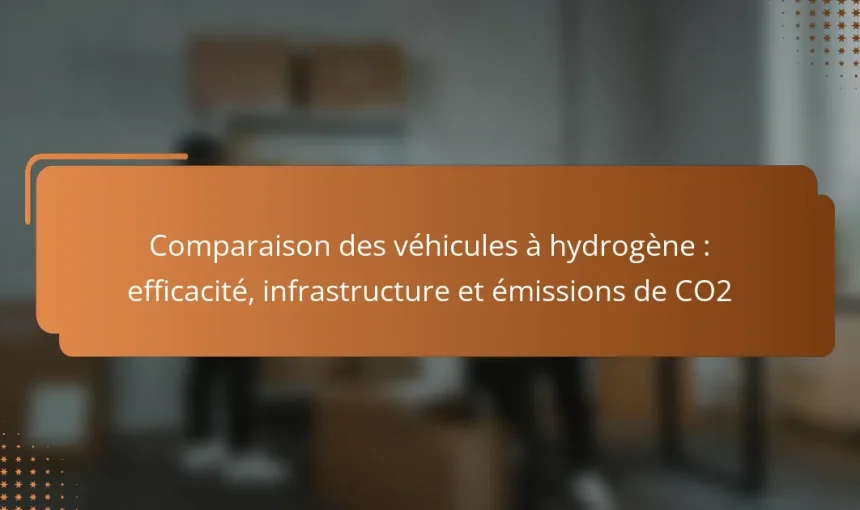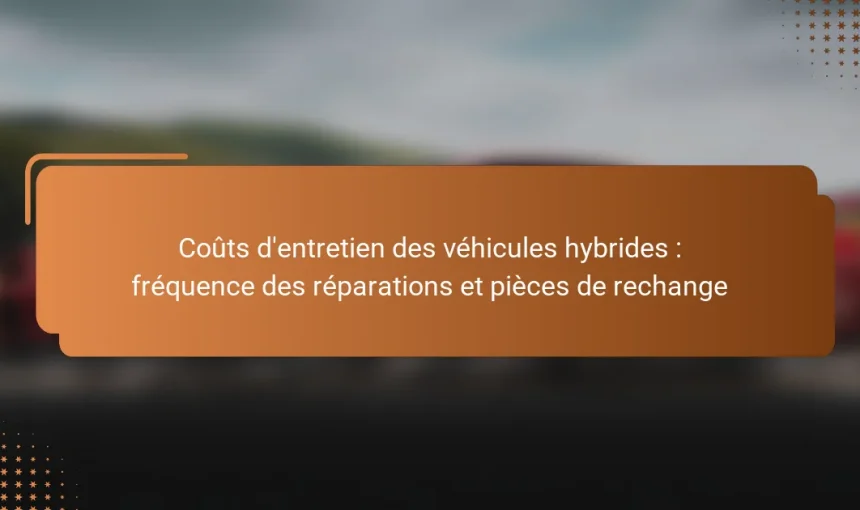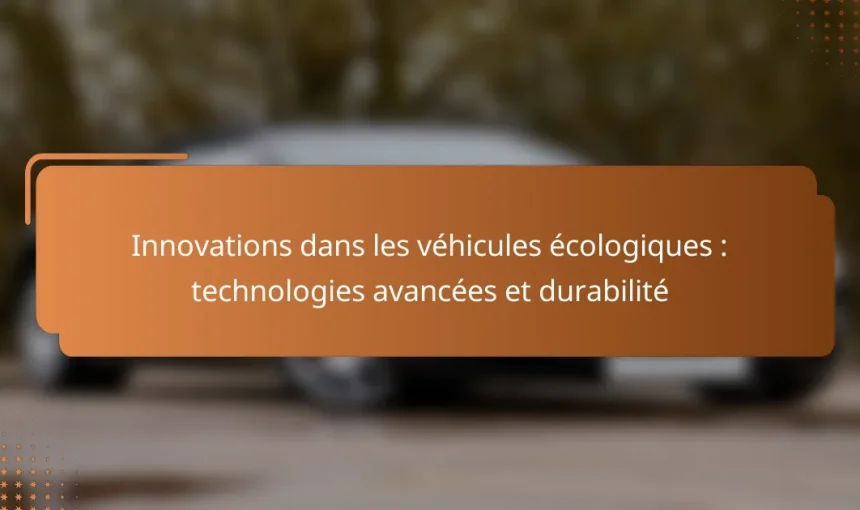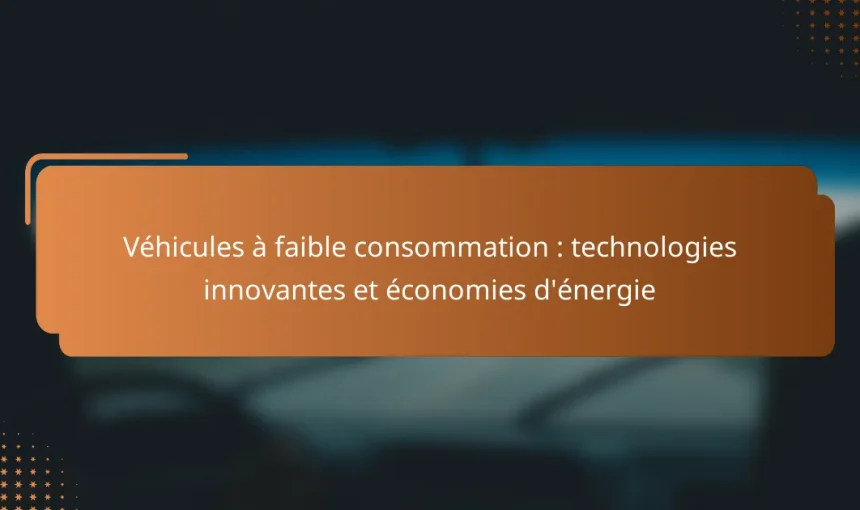The evaluation of ecological vehicle performance focuses on measuring energy efficiency and environmental impact through various criteria, including fuel consumption and emissions of CO2 and other pollutants. Testing is conducted according to specific standards set by organizations like the International Organization for Standardization (ISO) and includes fuel consumption tests, emissions assessments, and electric range evaluations. […]
The article examines the maintenance costs associated with ecological vehicles, including electric and hybrid models, and emphasizes the importance of preventive maintenance practices. Electric vehicles typically incur lower annual maintenance costs compared to combustion engine vehicles due to fewer moving parts, while hybrid vehicles present intermediate costs that may be offset by fuel savings. Key […]
Ecological vehicles, including electric cars, hybrid cars, and hydrogen vehicles, provide significant advantages such as reduced greenhouse gas emissions and decreased reliance on fossil fuels. Electric vehicles produce zero emissions during operation, while hybrids and hydrogen vehicles enhance fuel efficiency and emit only water vapor, respectively. Additionally, these vehicles often lead to financial savings for […]
Electric vehicles (EVs) have various financing options and government incentives that facilitate their purchase. Specific auto loans for EVs, often provided by banks and financial institutions, may offer preferential interest rates. Government grants, such as the ecological bonus in France, can significantly lower the purchase price, while tax incentives and leasing programs further enhance affordability. […]
Low-emission vehicles are designed to produce fewer atmospheric pollutants, significantly reducing greenhouse gas emissions and harmful substances. These vehicles utilize advanced technologies such as hybrid, electric, and bioethanol engines, contributing to improved air quality and supported by government policies that encourage their adoption. Economically, low-emission vehicles lower fuel costs due to enhanced energy efficiency and […]
The article focuses on the impact of ecological vehicles on air pollution, highlighting various studies that demonstrate their environmental benefits. Ecological vehicles, including electric and hybrid models, significantly reduce greenhouse gas emissions and improve air quality in urban areas. Key findings indicate that electric vehicles can cut CO2 emissions by up to 70% compared to […]
The article focuses on the comparison of hydrogen vehicles, evaluating their energy efficiency, hydrogen storage capacity, and driving range. Key criteria include the vehicles’ energy conversion efficiency, which ranges from 60 to 70%, and their driving range of 500 to 700 kilometers. Additionally, the article discusses the importance of hydrogen refueling infrastructure, highlighting the rapid […]
The article focuses on the maintenance costs of hybrid vehicles, highlighting the frequency of repairs and the types of replacement parts required. On average, annual maintenance can range from 300 to 600 euros, with hybrid vehicles generally needing fewer repairs compared to traditional gasoline vehicles. Key components such as hybrid batteries, electric motors, and regenerative […]
The article focuses on innovations in ecological vehicles, highlighting advanced technologies aimed at reducing emissions and enhancing energy efficiency. Key advancements include high-capacity lithium-ion batteries that extend vehicle range, hybrid systems that combine internal combustion engines with electric motors to optimize fuel consumption, and energy recovery technologies like regenerative braking. It also discusses the use […]
Low-consumption vehicles are designed to minimize fuel consumption through advanced technologies that enhance energy efficiency. These vehicles, which may include hybrid or fully electric models, can achieve fuel consumption rates as low as 3 liters per 100 kilometers, leading to significant reductions in CO2 emissions. The growing popularity of low-consumption vehicles is driven by environmental […]
